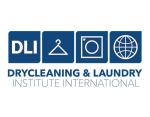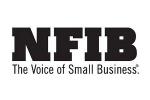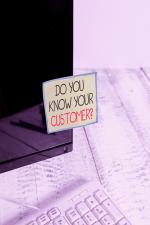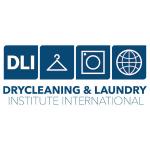CHICAGO — Today’s independent business owners, dry cleaners included, have more opportunities than ever to market and reach their target audience. And with those choices comes the danger of becoming overwhelmed.
That doesn’t have to be the case, though, according to Donna Botti, owner of Delos, Inc., a firm located in the Philadelphia area that specializes in marketing and interactive communications. She offered her guidance on making the most of today’s marketing tools during a recent webinar hosted by the National Federation of Independent Business (NFIB).
In Part 1, we examined the need to focus on knowing your audience and focusing on what you want your marketing to accomplish, and in Part 2, we dove deeper into identifying your ideal clients and how best to connect with them. Today, we continue by looking at what should be the hub of your digital marketing efforts, and how to own your lines of communication.
At the Center of it All
When considering their digital media efforts, Botti urges owners to make their website the center of their strategy for their core strategic content, rather than relying on Facebook, Instagram or other platforms.
“Social media is great, but you don’t own it,” she cautions. “It is rented land. Your most important messages should be on your website because you own it and you control all the content. Social media gives you the flexibility to experiment and drive traffic back to your website or provides a means of contacting you, but you should not make your entire strategy based on social media.”
Besides the ownership issue, there are a couple of reasons for Botti’s viewpoint.
“First, have you ever tried to find something on social media that was posted a week ago?” she asks. “You can’t do it. But the information that your ideal client needs to know doesn’t expire within a week. There are things that are what we call ‘evergreen,’ that are important time and time again.”
The other reason is that, if someone is searching for you, or for a business like yours, having a website gives them a target to find.
“The website ends up being the destination for search,” she says. “When I’m searching for something, I actually have more intent to buy. With social media, you’re just scrolling by me in the feed.”
Besides a website, Botti believes a major component of digital marketing is securing a company’s Google Business Profile.
“Google has changed the name of this service a number of times over the years,” she says, “but if you have a local community presence, the No. 1 thing that you should be doing outside of having a website, where you keep your core information, is to have a Google Business Profile. This is a free service, and one of the most important things is that it’s tied to Google Maps. More and more searches happen on maps, as people are constantly looking for ‘things near me.’”
Owning Your Channels
One of the mental adjustments Botti says is valuable for owners to make when considering marketing is to stop thinking of services such as Facebook as social platforms. They are paid marketing platforms.
“A few years ago, you saw signs everywhere saying, ‘Follow us on Facebook and like our page,’” Botti recalls. “You don’t see that anymore, and the reason why is that what shows up organically for the followers of your Facebook business page is minimal. The average is around 2% — if you have 100 followers, two people will actually see your posts in the feed.”
In order to get your message to show up, owners must pay for a “boost.” “As an advertising platform, Facebook and other platforms can be effective,” Botti says, “but strictly organic reach is getting harder and harder. Meta (Facebook’s parent) is a billion-dollar company, and they make their money through advertising.”
Botti believes it’s much more effective to connect with your clients directly.
“I think everyone should be doing email marketing,” she says. “Your paid traffic and your earned traffic, which is people who do see your post or find you in search, is great. But what you really want to do is convert those people to owned traffic — people you can contact whenever you want. And typically, that’s going to be possible by getting their email. Across all ages, email is still the No. 1 preference from buyers in terms of getting information and offers from businesses.”
Building a quality email list takes time, Botti says, but it’s a matter of having processes in place that focus on getting those valuable email addresses.
“You’re going to get the word out on social media through advertising, and you’re going to offer people something of value to people so they give you their address,” Botti says. “Why should I sign up for you? Is it a lead magnet? Do I want to watch this video? Are you going to give me a coupon discount?”
Once you do have that address, it’s important to use it. “Clients will come to us and say, ‘We have 8,000 emails on our list.’ When I ask them when was the last time they contacted them, they’ll say ‘Four years ago.’ Well, that list is dead. You want to email them on a regular basis.”
Botti doesn’t believe that newsletters mailed out have the same impact that they once did. “I recommend short content a couple of times a month, or weekly if you can do it,” she says. “I do something every week. It’s called ‘Tech News Tuesday,’ and it’s a very quick, actionable tip on something I think you could do or something I think you should know about in the digital marketing space. And it literally takes a couple of minutes. But I’ve had people on my list for years, and they reply back all the time.”
Through all of this, Botti says that not every contact needs to contain unique information.
“It is perfectly fine to repeat the same content on your website, on LinkedIn on TikTok, on Facebook, or wherever and in your email,” she says. “It takes some repetition of your branding for people to even pay attention, and people have different channels that they look at.”
Come back Thursday for the conclusion of this series, when we’ll look at ways to make the digital marketing process more manageable. For Part 1 of this series, click HERE. For Part 2, click HERE.
Have a question or comment? E-mail our editor Dave Davis at [email protected].




























































































































































